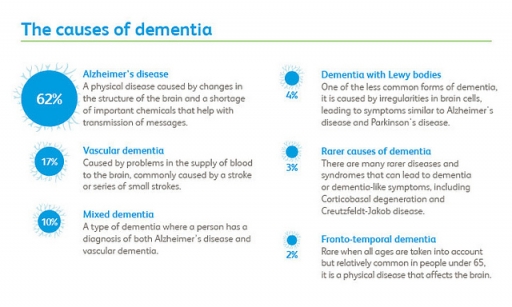According to Mayo Clinic, mild cognitive impairment (MCI) is an intermediate stage between the expected cognitive decline of normal aging and the more serious decline of dementia. It can involve problems with memory, language, thinking and judgment that are greater than normal age-related changes.
If you have MCI, you may be aware that your memory or mental function has “slipped.” Your family and close friends also may notice a change. But generally these changes aren’t severe enough to interfere with daily living. Some people with MCI never feel any progression in severity, and a few eventually get better.
Dementia, however, generally comes with greater impairment than MCI. By definition, at least two of the following core mental functions must be significantly impaired to be considered dementia:
- memory
- communication
- language
- ability to focus and pay attention
- reasoning and judgment
- visual perception.
Symptoms and diagnosis
Symptoms of MCI include forgetfulness, including forgetting important events such as appointments or social engagements. You may lose your train of thought mid-conversation, feel increasingly overwhelmed when faced with decisions, and may even have trouble finding your way around otherwise familiar environments.
While dementia may present somewhat similarly to MCI, symptoms tend to be more significant, including not only memory loss and inhibited focus, but also more significant language problems, an inability to learn new information, significant difficulty with planning and organizing, with coordination and motor functions, personality changes, inability to reason, and paranoia. Those with MCI are also more likely to notice their own symptoms while those with dementia may not fully grasp the decrease in ability until family members bring it to their attention.
If your loved ones or others around you such as your Abcor Chicago home care aide notice these changes, try not to write them off or take it personally, but rather work with them and your healthcare provider to determine the source of your symptoms, and if it may indeed be MCI or dementia, work out a plan to cope as a team.
Your doctor may use a questionnaire, lab tests, a neurological assessment and/or brain imaging as part of the diagnosis process. You can prepare for your first appointment by taking a few minutes to think about how exactly you would articulate any recent or even longer-term changes and which symptoms have caused the greatest interruption to your daily life.
Prognosis and care
Currently, no MCI drugs or other treatments are specifically approved by the Food and Drug Administration. However, MCI is an active area of research. Clinical studies are under way to shed more light on the disorder and find treatments that may improve symptoms or prevent or delay progression to dementia.
Similarly, there is no cure and no treatment that slows or definitively stops the progression of dementia. But there are drug treatments that may temporarily alleviate some symptoms. For example, the Alzheimer’s medications are sometimes prescribed to help with symptoms of other types of dementias.
Some dementia symptoms can be due to reversible underlying causes such as an underactive thyroid, vitamin deficiency, brain tumors and depression. If during a medical evaluation these reversible causes of dementia are ruled out, the probable cause of dementia symptoms may be due to Alzheimer’s.
Certain non-drug therapies, which you can ask your physician about, and healthy lifestyle changes like those mentioned above, can also alleviate some symptoms of dementia. In both cases, reliable and professional homecare can have a major impact in improving the quality of life on a daily basis for someone facing cognitive impairment.
In the meantime, regular physical exercise, a diet low in fat and rich in fruits, vegetables, and omega-3 fatty acids, intellectual stimulation, social engagement, and memory training may be beneficial to slowing the progression and generally coping with MCI, dementia, as well as normal aging and early Alzheimer’s. Staying informed, self-aware and in constant communication with loved-ones and health care providers is vital in identifying MCI or dementia and managing them accordingly.
